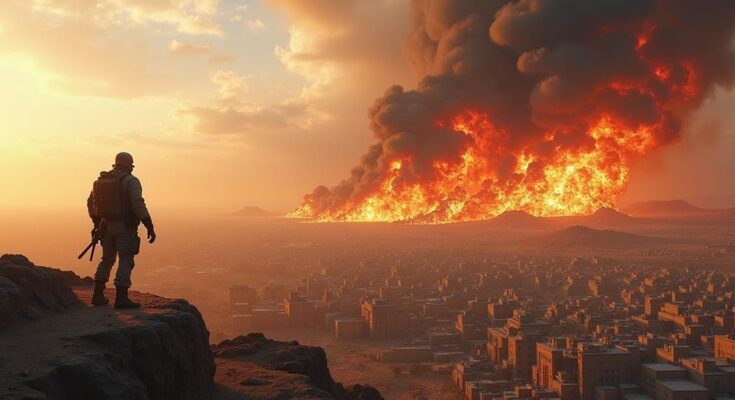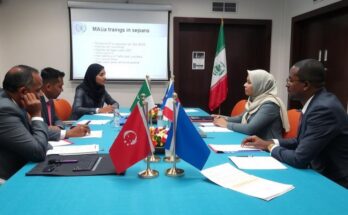UN Secretary-General António Guterres has condemned the escalating violence across the Middle East and called for an immediate ceasefire. The situation has been aggravated by missile attacks from Iran towards Israel and Israeli military actions in Lebanon. Hostilities are rising amidst the backdrop of the ongoing Gaza conflict, with humanitarian operations struggling amid regional tensions. Critical ports in Yemen remain operational even following Israeli airstrikes aimed at Houthi rebels.
In light of intensifying violence across the Middle East, United Nations Secretary-General António Guterres has urgently called for an end to hostilities. “I condemn the broadening of the Middle East conflict, with escalation after escalation,” he stated firmly in a recent announcement, advocating for an immediate ceasefire. As tensions rise, Iran reportedly launched multiple ballistic missiles towards Israel shortly after the Israeli military initiated a limited ground operation in southern Lebanon. Although the Israeli military asserted that about 180 missiles were intercepted, no immediate reports of casualties emerged within Israel. This escalation follows prior Israeli airstrikes in Beirut, targeting senior Hezbollah leadership, thereby exacerbating an already volatile situation. The conflict has roots in a broader historical context, particularly referencing the ongoing Gaza conflict which has now entered its second year. There has been a marked increase in cross-border assaults, reminiscent of hostilities witnessed nearly two decades ago, which led to the UN Security Council passing Resolution 1701 to address and mitigate such conflicts. In a separate yet related issue, the UN reported that Israeli airstrikes on Yemen have not significantly disrupted operations at the crucial port city of Hudaydah, through which essential humanitarian aid is transported to the war-torn nation. Recent Houthi aggressions against Israeli targets have prompted hostile responses, perpetuating regional instability and straining international trading routes. Despite the conflict, UN officials confirmed that both ports in Hudaydah continue to function, albeit under challenging conditions due to limited power resources. Humanitarian efforts are ongoing, with authorities striving to meet the increasing needs of the population. The Israeli Ambassador to the UN, Danny Danon, addressed the situation following incidents of Iranian missile attacks on Israel, emphasizing the critical nature of these developments in the ongoing regional conflict.
The ongoing violence in the Middle East is exacerbated by a complex web of conflicts, including the long-standing Israeli-Palestinian issue, the involvement of various regional powers like Iran and Hezbollah, as well as the humanitarian crisis in Yemen. This article discusses recent events that showcase an increase in military actions across the region, notably the missile attacks from Iran and the Israeli operations in Lebanon. It also highlights the historical context of UN resolutions aimed at peacekeeping and the operational status of critical humanitarian ports amidst continuous conflict. This situation underscores the dire need for effective diplomatic resolutions to prevent further escalation and humanitarian disasters.
In summary, the situation in the Middle East has intensified significantly, marked by retaliatory strikes and rising hostilities between Israel and various factions. UN Secretary-General António Guterres calls for an immediate ceasefire, emphasizing the critical need for de-escalation to avoid further loss of life and regional disruption. The recent events reflect a continuing cycle of violence that requires urgent attention from the international community to restore peace and security in the region.
Original Source: news.un.org




